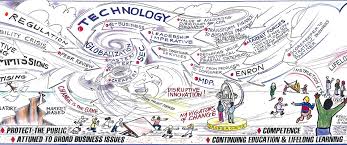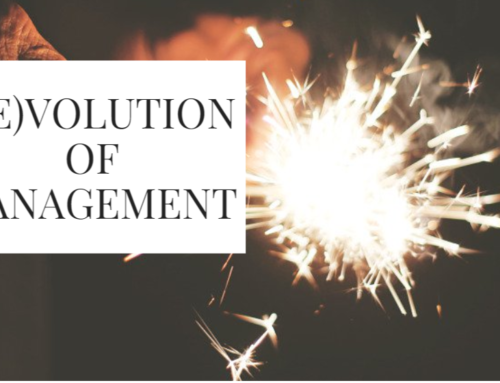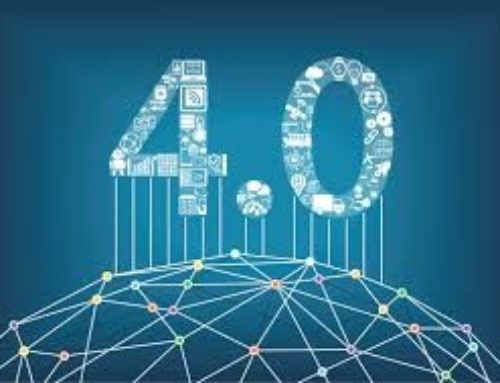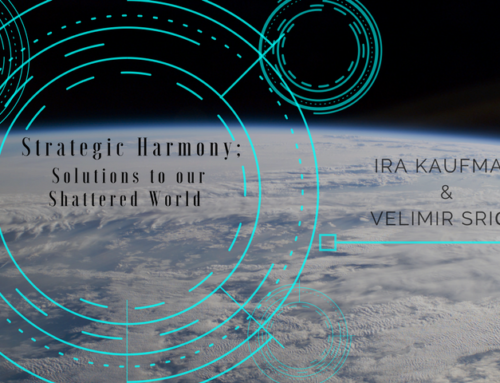This post reflects a conversation on preparing future leaders between a millennial student and a baby boomer leadership strategist. Their impressions and challenges are revealed below.
Millennial Student speaks:
As a college student living in this increasingly VUCA (volatile, uncertain, complex, ambiguous) age, I’m not getting educated for my future as a leader. Although I’m rated an “A student”, I struggle to keep my head above water as I’m constantly bombarded with new concepts, ideas, information, and the uncertainty of a rapidly fluctuating job market. I’m faced with frightening albeit exciting possibilities. Unfortunately, my education has not prepared me to be successful in our uncertain marketplace. I don’t have what I need to thrive as a leader.
As a child of the new millennium, I’ve been taught to regurgitate information. I grew up in a culture of standardized testing and cookie cutter curriculum; I’ve never had to think in a new or particularly nuanced way. Yes, my academics were high, but I felt like merely being filled with information rather than learning how to think effectively. It’s always been about who can get the best test score or remember the most things. Thinking outside the box or and diving into the unknown with confidence was never in my “job” description.
Clearly, my high school and college education are lagging behind the current demands of technology and economics driven world. Furthermore, the hierarchical organization rules maintaining the traditions that stifle innovation. Educational approaches aimed at creating leaders remains stuck in an ineffective, obsolete, and siloed stupor. Even some of the best universities follow the same traditional methods and techniques of last century.
As a result, the system is reaping what it has sown, and I’m part of the harvest. Mentally, I need to be quick, adaptable, and agile, yet I (like many of my counterparts) have never been taught these skills. I’ve had to struggle and discover them on my own.
To my shock, I am investing four years at college to realize that our educational institutions are preparing us for jobs that won’t even exist in the future. With the coming of automation, artificial intelligence and changing societal needs, my education is already antiquated requiring a major update. Recently, I noted “recruiters are looking for those nimble enough to constantly learn new technologies and apply their skills on the fly…They are not necessarily looking for knowledge of certain software. They are looking for what most consider soft skills: problem solving, effective communication and leadership.”
Furthermore, I learned that the level of trust globally for leaders in four major institutions (media, politics, non-profit, business) are at the lowest level ever. If we look at the rise of nationalism and authoritarianism around the world, we see many of our political institutions ready for change. We also see the world economy growing in leaps and bound, yet it also remains wracked by instability and inequality. Our generation is truly inheriting a very different kind of world, one which is moving at an exponential rate of change. I feel “cheated” as I am not being prepared for these changes. We need a vastly different approach to educating future leaders that includes values, ethics, technical and soft skills to survive and rise above the challenges of this VUCA age.
Our educational system must reinvent itself to be relevant!
Baby Boomer Leadership Strategist speaks:
I appreciate the student’s insights and candor; he set the context and a demand for change.
As a leadership strategist, I can see the challenges, develop a relevant leadership experience, but can’t find colleges that offer such an approach. My daughter’s going to college next year and wants a broad liberal arts education to challenge herself and prepare to become a Next-Gen leader. But, I’m not sure any of the institutions we’ve looked at are really designed to prove the holistic learning experience she needs to survive and thrive.
Recently, we visited nine of the best private and public institutions in the Commonwealth of Virginia– James Madison University, University of Virginia, University of Richmond, Mary Washington University, Christopher Newport University, College of William and Mary, Lynchburg College, Roanoke College, and Randolph College. All these quality institutions acknowledged two priorities: prepare leaders to meet the needs of our world and participate in community service to give something back to the community.
Yes, all recognize the need to train our future leaders but the published curriculums reflect traditional leadership styles, siloed courses, and outdated mindsets. None, that I observed, incorporated a holistic, integrated and transformation-driven approach. None, discussed the VUCA world and its significance to future leaders. None, integrated Transformative Learning and Technology Management Education required to meet the rapid changes in the global environment.
I was dismayed. From my experience in the VUCA world, siloes have no place and the traditional “Leader” (focused on transactions, product efficiency, achieving profit) must be totally reinvented. Catalyzers, are values based, focus on agility and social impact driven; they leverage disruption, challenge business models and collaborate with the right partners for Strategic Transformation. They are the true leaders of the future.
How can leadership programs prepare the next-generation?
One courageous approach has been initiated at Becker College in Worcester, MA. All undergraduates are required to gain exposure to an Agile Mindset through four interlocking courses Empathy, Divergent Thinking, Entrepreneurship, and Emotional Intelligence. Dr. Robert E. Johnson, former president at Becker, adopted the Agile Mindset to address the underserved need of higher education to prepare students for the future. “Educational malpractice is what colleges and universities are committing today when they do not adequately prepare graduates for a world that is constantly evolving and changing…Our collective responsibility in educating students must be to help them understand that in today’s society they must be adaptive, nimble, and entrepreneurial…Welcome to the VUCA world—Volatile, Uncertain, Complex, and Ambiguous.
The Agile Mindset is a much needed and innovative approach to education for our future generation. The key is not just teaching the “Agile Mindset,” but How to guide its adoption and reinforce its implementation.
What should guide their approach?
If we look at Professor Edward Freeman’s ideas on the future of responsible capitalism, we can begin to get an roadmap. He challenged executives to look at traditional business and its foundation in capitalism. Unafraid to confront entrenched assumptions, he advocated, a values-based capitalism where giving back and contributing to society exist as crucial aspects of financial success. Within this model, purpose serves to integrate the interests of all shareholders within an organization, while encouraging collaborative planning and action. This approach is very relevant to leadership as purpose, values, and empathy must drive strategies to address the needs of all stakeholders.
Where to begin?
“Most leadership development programs are going about things incorrectly. Instead of training the outer competencies like strategy, finance, and communication, perhaps more focus should be given to developing leaders’ inner games and operating systems. This type of “leadershift” would surely yield leaders whom possess the agility and creative capacity required to navigate the World of VUCA.” Joe Hunt, Managing Partner Hunt Executive Search
With the global crisis in leadership, there’s a clamor for change. As leaders face challenges that disrupt their assumptions, norms and best practices, they must self-reflect on their purpose and design transformative strategies that meet the needs of their constituency. So, professors and “leadership trainers” must self-reflect on their approach to change and confront their traditional beliefs and bias on how to prepare future leaders. The training cannot be siloed in one department or static in content; it must be integrated, collaborative and constantly innovative. To be relevant and responsive to student voices (see above), they must re-invent curriculum to reflect the VUCA world and adopt engaging pedagogical techniques. The transformation must be in both content and implementation.
It’s evident that the next generation of Millennials and Generation Z students (my daughter included) need transforming initiatives to be prepared as Catalyzers for the future. Here are some provative questions to guide their transformation:
- What is the intention behind the leadership program? (recruitment, revenue, preparing leaders)
- Will the program integrate training for multiple disciplines? (business, nonprofits, government and social service)
- Will the curriculum integrate soft-skills and technology management education (empathy, collaboration, digital technologies, building trust, and lifelong learning)
- Does the program integrate a quantum approach to purposeful design and implementation? (breaking down assumptions generating new business models)
- Is success expanded beyond profit to social impact for all stakeholders? (Quadruple Bottom Line)
Our educational institutions must respond to the challenge – preparing Catalyzers who can survive and thrive.
This post sets the context. The next posts in the series focus on skill sets in the Wheel of Lifelong Leaning. Part II- Transformative Learning and Part III – Technology Management Education.
****
Will Tharp, interested in inspiring leadership global change; Junior, Lynchburg College; Content Development Associate, Entwine Digital
Ira Kaufman, PhD, interested in catalytic leadership and digital transformation; Strategic Transformation Strategist;’ Executive Coach; co-author, Strategic Harmony… 21 Solutions to our Shattered World; Digital Marketing: Integrating Strategy and Tactics with Values







Leave A Comment